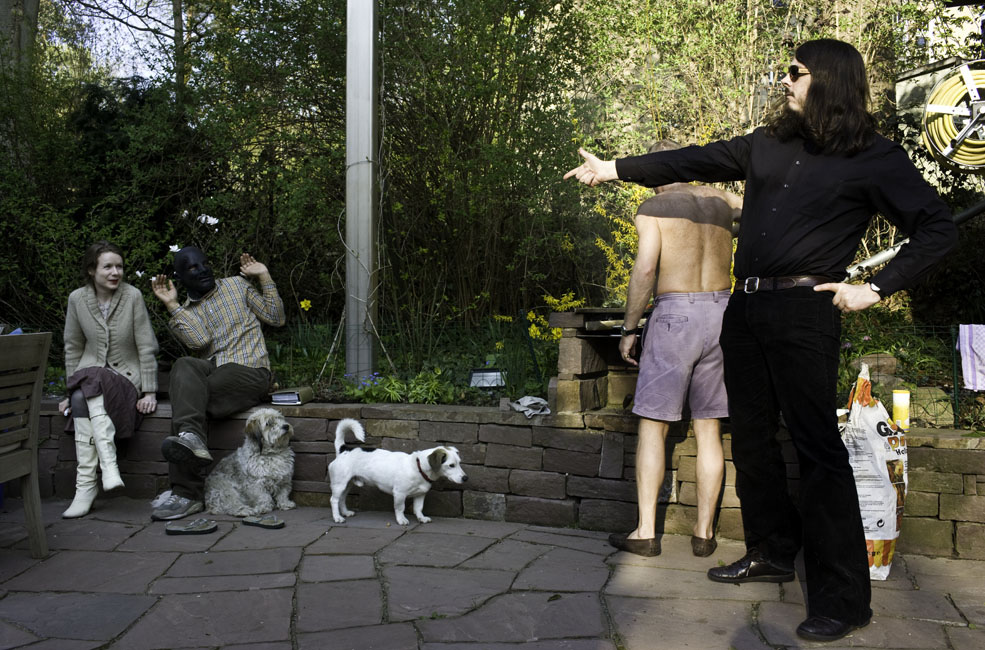|
Die Humpty-Dumpty-Maschine Der Totalen Zukunft
Die Humpty-Dumpty-Maschine der totalen Zukunft (''The Humpty-Dumpty machine of the total future'') is a bronze sculpture created 2010 by Jonathan Meese, and installed at the Alte Nationalgalerie in Berlin, Germany, during 2011–2015. Creation The original concept was "animal with naked woman"; the animal became a machine and the human disappeared. The work of art was first created as a geometric sketch from which a small model was developed. The next step was a large polystyrene model, which was then "ore-machined". The sculpture was cast in the Hermann Noack art foundry. The employees of the bronze foundry were involved in this step to guarantee a stable basic structure on which the details could be built. The final processing of the surfaces including mechanical and chemical treatment was also carried out by the Noack specialists. According to the artist, models for his work of art were: the Nautilus, Emma the steam locomotive, Lok 1414, Chitty Chitty Bang Bang, vehicles from ... [...More Info...] [...Related Items...] OR: [Wikipedia] [Google] [Baidu] |
Jonathan Meese
Jonathan Meese (born January 23, 1970 in Tokyo) is a German painter, sculptor, performance artist and installation artist based in Berlin and Hamburg. Meese's (often multi-media) works include paintings, collages, drawings and writing. He also designs theater sets and wrote and starred in a play, ''De Frau: Dr. Poundaddylein - Dr. Ezodysseusszeusuzur'' in 2007 at the Volksbühne Theater. He is mainly concerned with personalities of world history, primordial myths and heroes. Jonathan Meese lives and works in Ahrensburg and Berlin. Life and work Childhood and youth (1970–1995) Jonathan Meese was born as a third child of his parents, a German and a Welsh, in Tokyo, Japan. His mother, Brigitte Renate Meese, returned to Germany in the mid-1970s. His father, the banker Reginald Selby Meese, born in Newport (Wales), lived in Japan until his death in 1988. Since Meese only spoke English after his return to Germany, he had difficulties adapting. After a period spent in Scotland, his ... [...More Info...] [...Related Items...] OR: [Wikipedia] [Google] [Baidu] |
